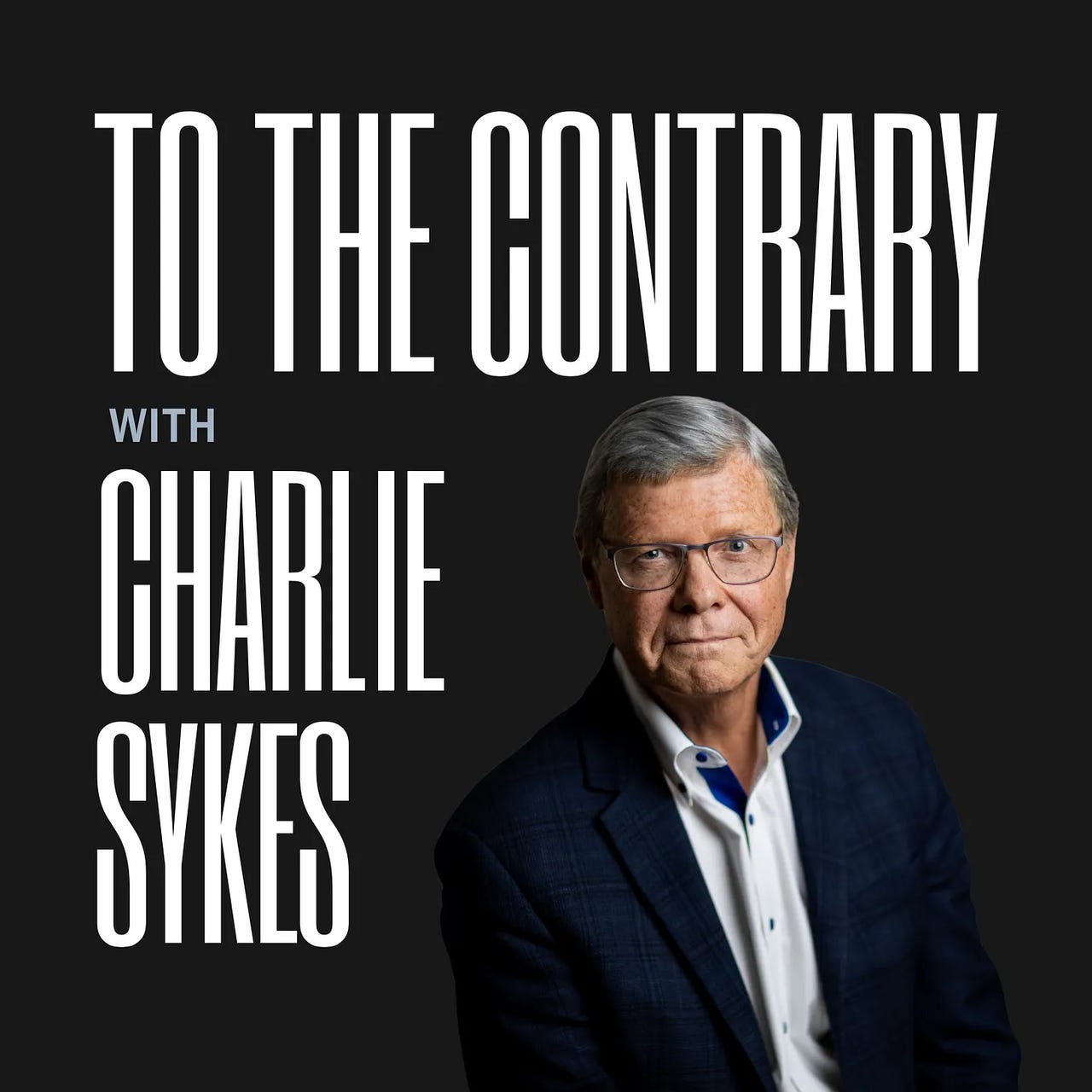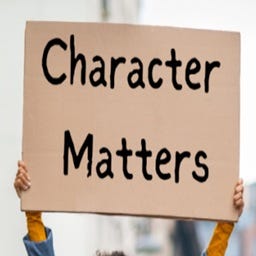My dad was different from my friends’ fathers. Specifically, he worked most weekends; he hated playing golf and he thought watching sports on TV was incredibly boring. He loved the mountains: hiking, skiing, camping, etc.
He was a student of history and genealogy. He was the one who organized the family films and photographs. He could figure out the grid and complete a blank crossword puzzle in less than 30 minutes — the length of his train ride from the city to home. His curiosity would lead him deep into learning new things of varying interests — tropical fish, wine, and begonias come to mind. He always studied and became an expert of sorts until he moved on to something new.
Dad loved music. He was the one, who was the accompanist at every party that required a piano player. I would lie in bed at night and hear him play Mozart or Chopin or Rachmaninoff…. And when I sat next to him in church, people would turn around in their pew to determine, who was that amazing baritone singing behind them. He even picked up a clarinet and played it in the village’s Bicentennial marching band.
Like I said, my dad was different.
He never yelled or even raised his voice - all he had to say to me was “I’m disappointed.” That would be enough to send me into a spiral of guilt and remorse. He thought anger was a waste of time; all things could be settled rationally. If voices got raised, he never said the typical phrases, like “pipe down” (or worse). No, Dad would say, “Modulate your voice.” It was a word that I learned at very young age.
And he hated conflict and arguments. I think that’s why he didn’t like politics much. He always did his civic duty and voted, of course. I assume he voted Republican — that was his father’s party, but he rarely weighed in on political figures or current issues.
He had a keen mind and was incredibly wise. He understood human frailty so he was usually very open-minded and non-judgmental. He had the capacity to hold multiple ideas simultaneously and as result could see all sides of things. His classic line was:
“Everything is fine in moderation.”
At heart, he believed in working things out in a thoughtful manner and compromise was part of the solution. If one were to translate that sentiment into political terms it would mean bipartisanship, middle-of-road, center right/left, etc.
When did our politics become so partisan? There was a time when senators like Daniel Inouye (D, HI) and Bob Dole (R, KS) were great friends and broke bread together in the Senate dining room. Cokie Roberts wrote about it in her books — how her parents (Hale and Lindy Boggs) were great friends of various Republican congressmen and their wives.
Welcome to the Zero Sum Era. Now How Do We Get Out?
Why did we stop working it out? When did moderation and compromise become dirty words? When did everything become win/lose and zero-sum gain?
Personally, I blame Newt Gingrich and his “Contract with America” nonsense for much of the cause of all this. Maybe it’s not that simple. But Newt appeared about the same time as The Rush Limbaugh Show and they definitely had a symbiotic relationship that promoted division and partisanship. Newt got an even bigger megaphone when FauxNews entered the scene.
The one thing I do know is that we will never get our government back until we get rid of these culture warriors and extremists, who are in power and start electing moderates.
The irony is that most of the people in this country lean from center right to center left. The people who seem to be controlling the political parties these days are less than 20% of the population.
I’m looking for the moderates and trying to figure out ways to get the rational people back in Washington DC… people like Elissa Slotkin or Lisa Murkowski or my former congressman, Brad Schneider from IL. These are people, who want to get things done FOR their constituents… they’re looking for RESULTS — not for LIKES on social media. Brad is a member of the the Problem Solvers Caucus which is a group equally divided between Democrats and Republicans, aiming to foster cooperation on key policy issues. As of 2025, it is co-chaired by Representatives Tom Suozzi (D-NY) and Brian Fitzpatrick (R-PA).
I just couldn’t watch the State of Union - can’t stand listening to #FOTUS’s lies and bravado. From what I read, he was his usual performative self by talking to Congress like he was at MAGA rally - not as “the (former) leader of the free world”.
But I did listen to Elissa Slotkin and thought she hit the ball out of the park. Did she please all of her party? Probably not, but she spoke to people like me.
I get frustrated when I get petitions, etc. from political organizations who are focusing on eliminating the Electoral College… that’s a pipe dream in my opinion. They need to put first things first: we need to change, who our elected officials are before we tackle a Constitutional amendment to get rid of the Electoral College. That means dealing the basics of election reform.
One of the movements I’ve been involved with is ranked choice voting (RCV). If you’re unfamiliar with it, check out Fairvote or Rank the Vote. We used RCV in my high school when electing the student council. It’s a pretty simple concept and an election reform that tends to bring the candidates to victory, who are looking out for the best interests of ALL of their constituents. Here’s a quick video that explains it:
Ranked choice voting has been used in Ireland, Australia and Malta for over a 100 years. It’s also used in Maine and Alaska and more and more states are looking at it and considering adopting it. In North Carolina, I have been involved with the state movement, Better Ballot North Carolina. Extremists on either side of the aisle are not fans of RCV, because their extremism doesn’t appeal to everyone and it makes it harder for them to win in a primary election. They are working hard against election reforms; things like RCV, open primaries and independent redistricting commissions.
I don’t believe that forming another political party like “No Labels” will work given the entrenchment of the two party system in this country. But I do believe that reforms like Open Primaries, Approval Voting as well as ranked choice voting are potential reforms that could make a difference.
Although I doubt anyone is going to listen to me, these are my ideas for improving our presidential elections:
No person is qualified to run for office, if they have a criminal record.
In order to become president, every candidate needs to publish their tax returns, their health records, and results from a mental acuity test.
Every candidate needs to take a basic civics test and demonstrate they understand their job according to the Constitution.
No campaigning or advertising can take effect for an election until March 1 of the election year. These long campaigns are tiresome and ridiculously expensive.
Put a cap on how much money candidates can spend for their campaigns. This might take some of the influence peddling out of the equation.
Get rid of plurality primaries (“winner take all”). Everyone gets a proportion of what they won in the primary. So if, for example, the candidate won 40% of the vote, then he gets 40% of the delegates — not 100%.
Hold the first primary on the same day in the four top states where the results of the election were the closest in the prior election. So in 2028, that would mean, Wisconsin, Michigan, Pennsylvania, Georgia. If these are the people, who are going to be the ones deciding our elections, then let’s get their opinions early rather later. It might help eliminate some of the more fringe characters.
I’d like to see if approval voting could be implemented in someway. If anyone has more than a 50% disapproval rating in say 35% of the states, then they can’t be on the ballot in the general election — something like that. It’s a pretty radical idea that might not really work, but I would love to see something like that.
The challenge is, of course, that our elections are controlled by the states — not at the national level. Implementing change one state at a time can be tough — particularly states that are entrenched politically. That said, blue states like California, Illinois and New York have managed to get RCV in some of their major cities.
One thing I do know for sure, is that our candidates are decided in the primaries — not in the general elections. If people really want change, they need to get involved early in the process. It’s estimated that only about 20% of Americans take the time to vote in the primaries. I find that number appalling. I know it’s hard to get people engaged much before October — but we will never get decent people in Washington DC, if voters don’t get engaged early on.
Partisanship is toxic and tearing the country apart. This ping-ponging back and forth from one extreme to the other is destroying confidence in the United States and is just not working. We need stability, continuity and calm. Culture wars are a waste of time. We need strong governance — not publicity stunts from our leaders. We need serious people in positions of power — not loyalists from central casting.
I believe in E Pluribus Unum. I believe in think win-win. I believe there is no one right answer - seek to find a solution that can work for most of the people — not just some.
Let’s get rid of red vs blue and create more purple candidates… let’s get the moderates back in Washington.
I can hear my dad’s voice: “Everything is fine in moderation.”
Thought for the day…
“All politics is about the pursuit of power, but liberal democratic politics carries with it a special responsibility to use that power for the dignity of each and the good of all.”
~ Rabbi Lord Jonathan Sacks
Must Read Articles:
Americans broadly understood how much their 1930 tariff, along with other protectionist and isolationist measures, did to turn a global economic crisis into another world war. Thirteen successive presidents all but vowed never to repeat those mistakes. Until Donald Trump. Until him, no U.S. president has been so ignorant of the lessons of history. Until him, no U.S. president has been so incompetent in putting his own ideas into practice…
In short, a willful, erratic and heedless president is prepared to risk both the U.S. and global economy to make his ideological point. This won’t end well, especially in a no-guardrails administration staffed by a how-high team of enablers and toadies…
A gutted I.R.S. work force won’t lower your taxes: It will delay your refund. Mass firings of thousands of federal employees won’t result in a more productive work force. It will mean a decade of litigation and billions of dollars in legal fees. High-profile eliminations of wasteful spending (some real, others not) won’t make a dent in federal spending. They’ll mask the untouchable drivers of our $36 trillion debt: Medicare, Medicaid, Social Security and defense….
Trump’s critics are always quick to see the sinister sides of his actions and declarations. An even greater danger may lie in the shambolic nature of his policymaking. Democracy may die in darkness. It may die in despotism. Under Trump, it’s just as liable to die in dumbness.
How to Tell That the Chain Saw Is Coming for America
I am not against shrinking the government, but I am much more in favor of improving the government. The best way to do that is through a process that considers:
What are the biggest economic/technological/educational/health trends in the world in which we are living?
How do we maximize our ability to thrive in that world?
Therefore, where should we cut and where should we invest to maximize our tax dollars to succeed in this world?
No such process is going on with the Musketeers. All they ever talk about is how much they cut — never how their actions are part of an overall plan that will strengthen our society and better serve Americans. Their joy comes from cutting, not building, just as Trump’s joy in “The Apprentice” came from firing and not hiring.
It is shameful, and penny-wise and pound-foolish. Yes, America did pay more than any other country to construct the pillars of the liberal world order over the last 80 years. But in doing so we made the global pie so much larger and more stable for everyone. And since we were the biggest and strongest economy, our slices just kept getting bigger and bigger than anyone else’s.
Quotes of the day:
“There are a lot of people, including in this town, who will never scream on the internet, who will never go to a rally, who will never get involved in partisan politics, but just want their government to run. I’m speaking to them—not to just the hardcore base of the party. And if they wanted someone to speak to the hardcore base of the party, they picked the wrong gal.”
~ Elissa Slotkin
What I’m reading today…
An Unexpected Trump Bump for the World’s Centrists
As Trump’s “shock and awe” policies radiate around the world, they are reshaping global politics in unforeseen ways. Trump’s sweeping tariffs and threats to the trans-Atlantic alliance have breathed life into centrist leaders, who are regaining popularity for their willingness to stand up to the American president. His clash with Ukraine and tilt toward Russia have thrown right-wing populists from Britain to Germany off balance, blunting, for the moment, their efforts to capitalize on Trump’s restoration to the White House.
The Advice Elissa Slotkin Didn’t Take
She struggles to mask her contempt for far-left organizations; she has little patience for colleagues who run Very Online campaigns in safely blue districts that blind them to the reality of what it takes to earn a ticket split from Republicans… Perceptions of her party were never going to shift in one night. Slotkin came into yesterday accepting, if not explicitly addressing, the realities of the brutal two-front war in which she is now a high-profile combatant: opposing Trump’s executive and legislative blitzkrieg while simultaneously battling with other Democrats who have their own visions for returning the party to power.
“It doesn’t win elections to just speak to the base of the party. If it did, Kamala Harris would be president.”
Vanity Fair just published a profile of Elisa Slotkin that makes me like her even more: How Elissa Slotkin, a Moderate Michigan Democrat, Is Fighting Trump Tooth and Nail
Thrust into unemployment, axed federal workers face relatives who celebrate their firing
Scrambling to replace their health insurance and to find new work, some laid-off federal workers are running into another unexpected unpleasantry: Relatives cheering their firing…The country’s bitterly tribal politics are spilling into text chains, social media posts and heated conversations as Americans absorb the reality of cost-cutting measures... Expecting sympathy, some axed workers are finding family and friends who instead are steadfast in their support of what they see as a bloated government’s waste.
“I’ve been treated as a public enemy by the government and now it’s bleeding into my own family.”
What stings most, is the contention that people like him were lazy and worthless, collecting big paychecks for meaningless work.
“It’s really hurtful for the president to insinuate that you don’t exist or that your job consisted of sitting at home doing nothing and cashing the paycheck. I’d like to see him sifting through spiny naiad in 120-degree weather looking for parasitic snails. He’s the one that goes golfing on the government dime. I don’t even know how to golf.”
~ 24-year-old Luke Tobin, who was fired last month from his job as a technician with the U.S. Forest Service in Idaho’s Nez Perce National Forest.
Musk Doesn’t Understand Why Government Matters
Musk’s fortune rests on more than his individual talent. He built his business empire in a nation with a stable political system and an unwavering commitment to the rule of law, and he built it on a foundation of federal subsidies, loans and contracts. Mr. Musk’s companies have received at least $38 billion in government support, according to an analysis by The Washington Post. NASA has invested more than $15 billion in SpaceX; Tesla has collected $11 billion in subsidies to bolster the electric car industry. Now, as an influential adviser to President Trump, Musk is lawlessly tearing down parts of the very government that enabled his rise….DOGE is not building a better government. Instead, its haphazard demolition campaign is undermining the basic work of government and the safety and welfare of the American people... If Twitter stops working, people can’t tweet. When government services break down, people can die.
The Plurality Problem: Plurality Primary Victors Hurt Parties in General Elections
Most states do not have majority thresholds for primary elections, which means that “plurality primary victors” (who won the primary with less than 50% of the vote) often advance to the general election...The researchers find that plurality primary winners underperform relative to expectation and that in competitive districts, this translates into a reduced likelihood of winning the general election. They conclude by discussing how potential reforms, such as ranked choice voting (RCV), might change the partisan and representational consequences of plurality primaries.
What States Can Learn from Wisconsin’s Win for Fair Maps
Here are just seven of the dozens of exceptional public lands that could be under threat. Please consider taking action to help defend these monuments, which belong to all Americans.
The MAGA Culture War Comes for Georgetown Law
Even a first-year law student knows that the federal government cannot dictate the viewpoint and curriculum of a private Christian school, yet here was a federal prosecutor opening an inquiry into a Jesuit school’s protected speech… The Trump administration is targeting the president’s perceived political opponents for investigation and punishment… The attacks on free speech and the First Amendment are so numerous that it’s difficult to keep up… If our liberties can survive a world war, then they can and should survive a culture war.
I'm honored to be part of the H.E.B. Foundation's Know Your Neighbor initiative. We venture into San Antonio's diverse neighborhoods to meet residents and learn about their history and culture. This experience has deepened my compassion for people different from me. It has also broadened my perspective, helping me realize that when I vote, I'm considering more than just my interests.
What I am listening to…
Start at the 5 minute mark! A great story from Michigan.










People like to say bullies are cowards but that is inaccurate, they are predators. The whole stand up to them and they run away crap is just that crap, you need to make them see you are not prey or at least realize the juice is not worth the squeeze. Trump and Co. are bullies, ignoring them won’t work, half heartedly resisting them won’t work, only drawing a line in the sand and making sure they draw back a stump anytime they cross it is the only way to deal with them. I have disagreed with other folks who preach moderation and I have to wonder what is on the line for them. My kid is LGBQT and is in actual physical and legal danger just for existing, and push comes to shove I will gladly do terrible things to protect him and sleep like a baby afterwards. So to me suggesting moderation is asking me to either ignore the danger my child is in or see some kind of compromise with those threatening him. Maybe I am overreacting, I do not care even a little bit, you can’t convince me to talk it out or try and see their point of view. So maybe I am nuts but I can only assume people pushing the “forget about politics” agenda don’t really have anything they care about on the line. Oh sure they might prefer that things not go all fascist but they don’t think it will really affect them, not enough to keep them up at night, not enough to be seriously considering moving because their state went red. Under Biden, heck even under W. taking politics in moderation made perfect sense, but this very moment there are only two sides and neither is moderate.
My State changed it to "undeclared". We are not allowed to register as "independent". Maybe that way, they can ignore people who are actually independent and not count them? I don't know the reason.